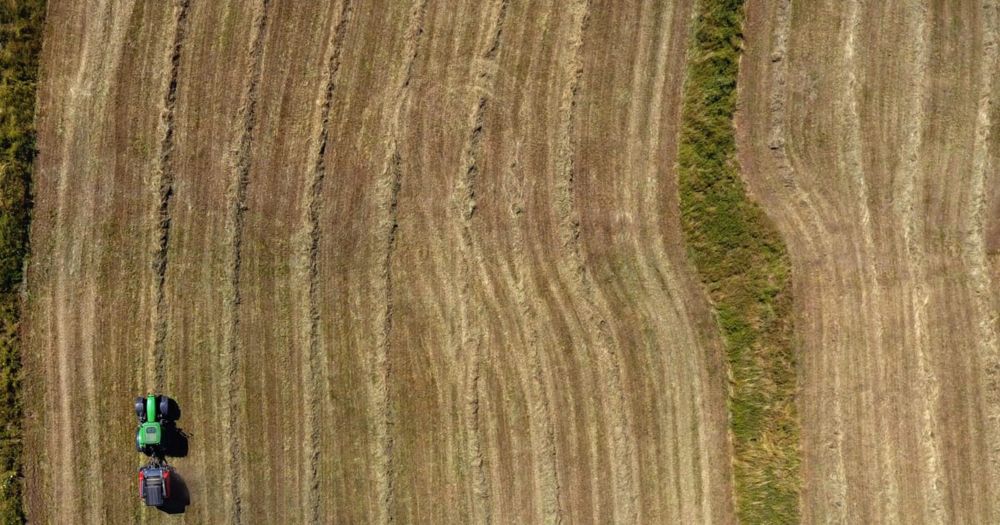
Have a look at the details - and many more charts - in my story for @politico.eu
11.07.2025 12:20 — 👍 0 🔁 0 💬 0 📌 0@luciacmackenzie.bsky.social
Agriculture and Food Reporter at POLITICO Europe

Have a look at the details - and many more charts - in my story for @politico.eu
11.07.2025 12:20 — 👍 0 🔁 0 💬 0 📌 0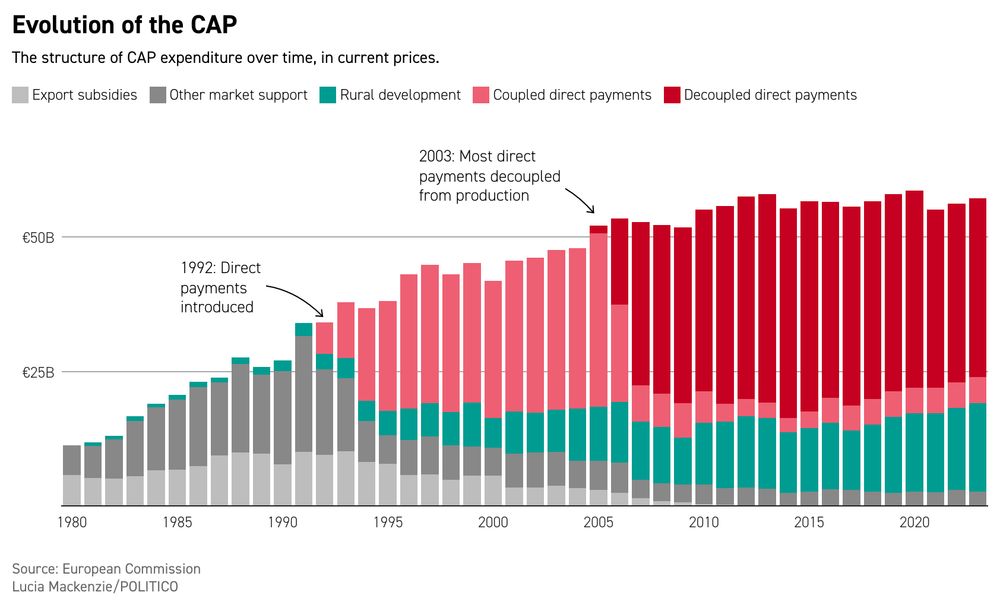
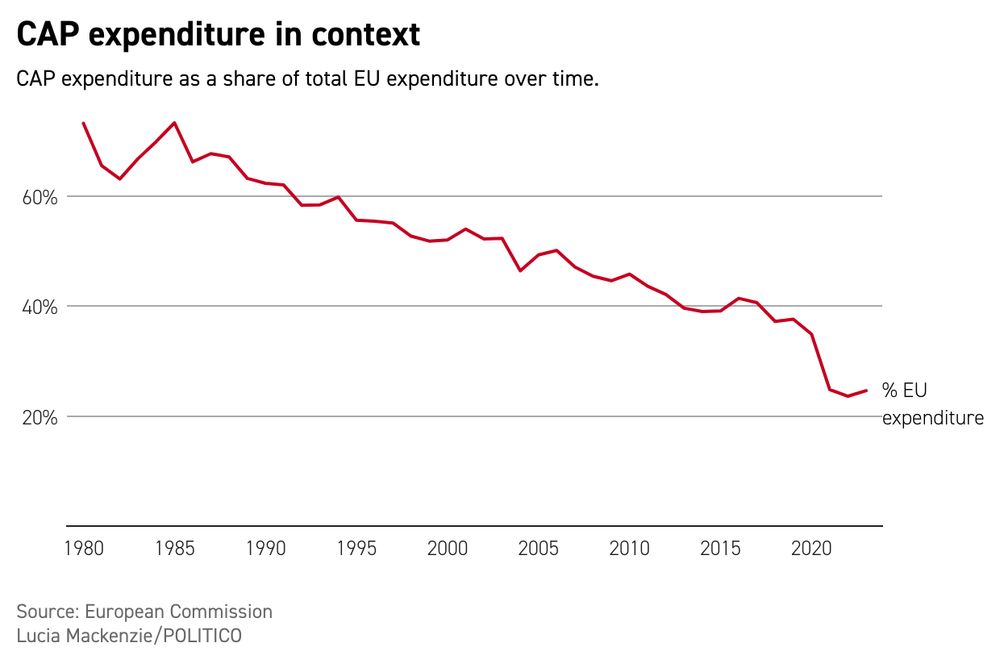
Wednesday’s announcement will be just one in series of reforms that have drastically changed what the CAP looks like and its share of EU expenditure.
11.07.2025 12:19 — 👍 0 🔁 0 💬 1 📌 0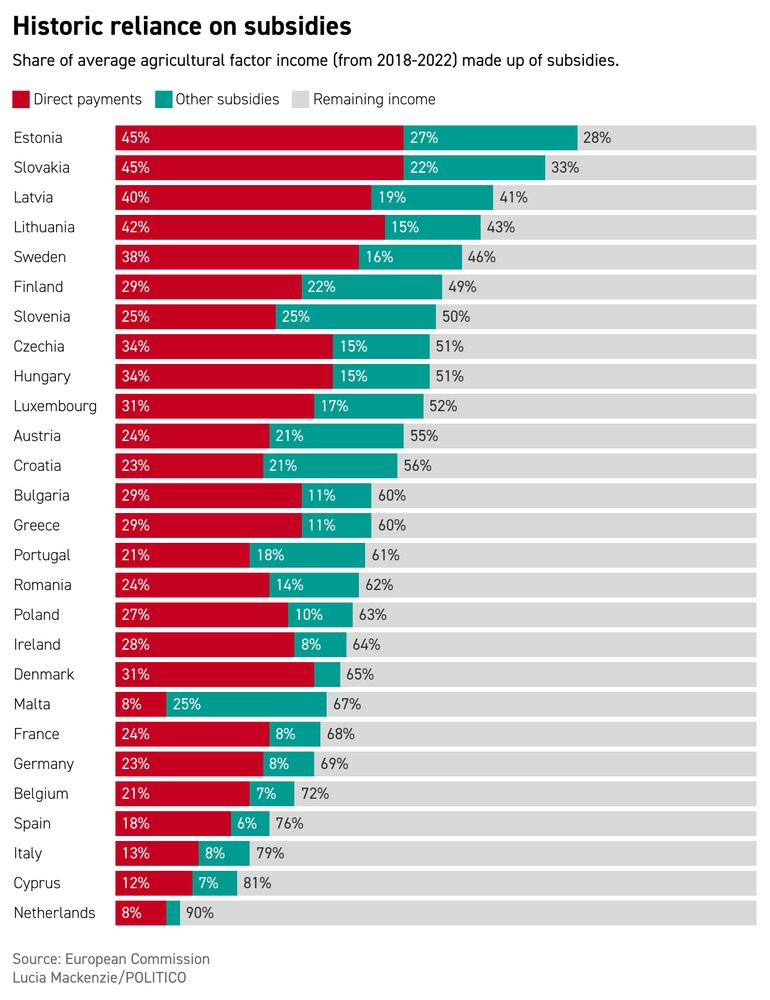
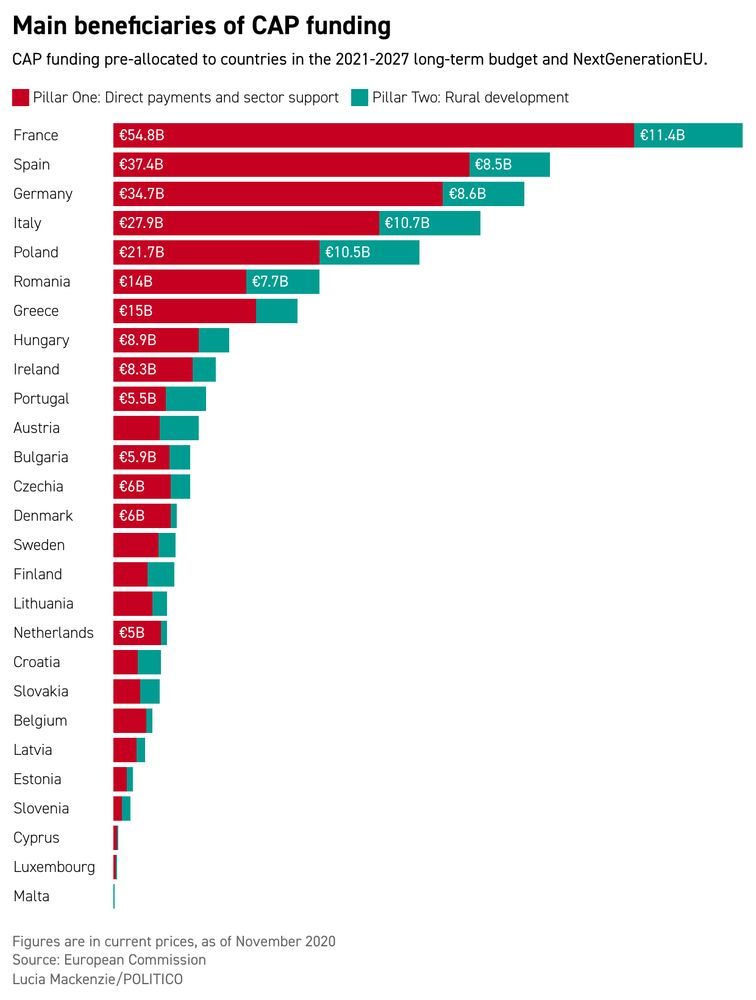
Large countries with swathes of agricultural land, like France, are well known as big winners when it comes to EU agricultural funding.
But it has historically been farmers in smaller countries, such as Estonia, that are the most reliant on subsidies.

In short, almost €400 billion euros is literally a big deal…
11.07.2025 12:18 — 👍 0 🔁 0 💬 1 📌 0
How big of a deal is the CAP really?
In the run up to next week's budget announcement, we thought it was time to take a step back and look at how the money was divvied up last time.
Here is how the EU spends almost a third of its budget on agriculture 👇
www.politico.eu/article/eu-b...
Some personal news 🥂
I’m happy to share that I’m starting a new position as an Agriculture and Food Reporter at POLITICO Europe!
If anyone in Brussels would like to grab a coffee to talk all things agri-food, you can catch me here or via lmackenzie@politico.eu
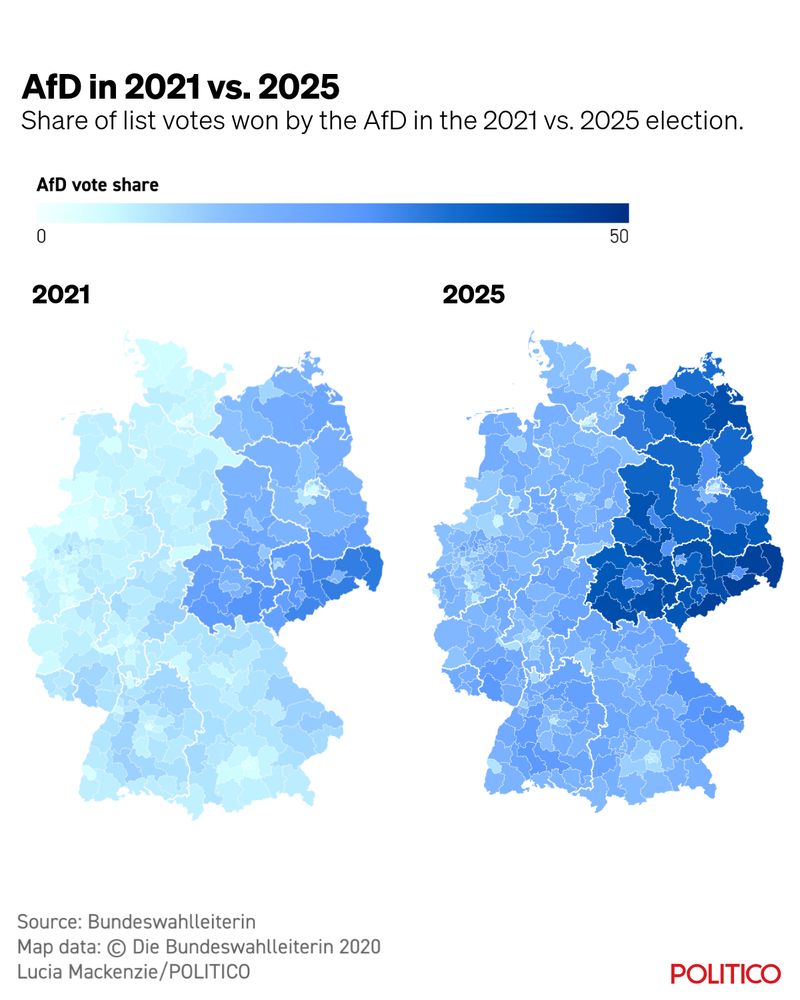
While a majority of Germany's West voted for Friedrich Merz’s conservatives this past Sunday, the far-right AfD saw big success in the East: ow.ly/kTTT50V6K7m
Here’s how the AfD share of list votes has changed from 2021 to 2025 across the country 👇
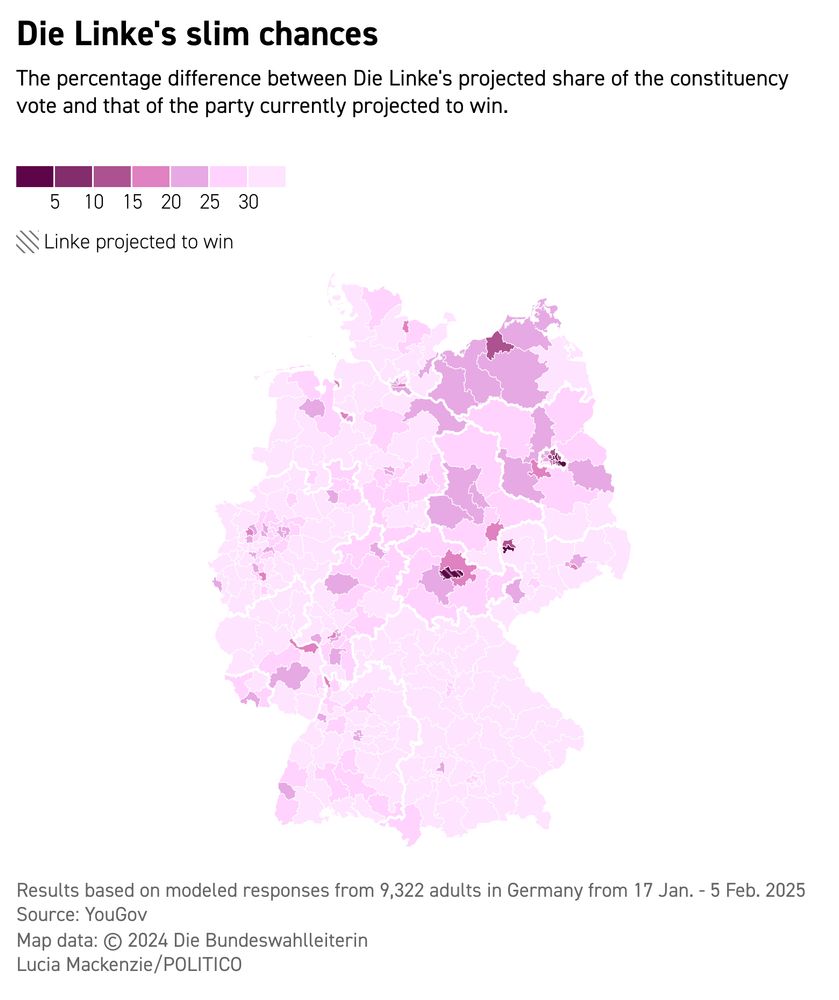
Election night is looking dicey for the smaller parties:
📈 Die Linke are polling at 7%. But they are still trying to win at least 3 constituencies outright, which would save them from the 5% cut off if needs must.
🧨 BSW are playing with fire, polling right around 5%.
📉 The FDP seem stuck at 4%.
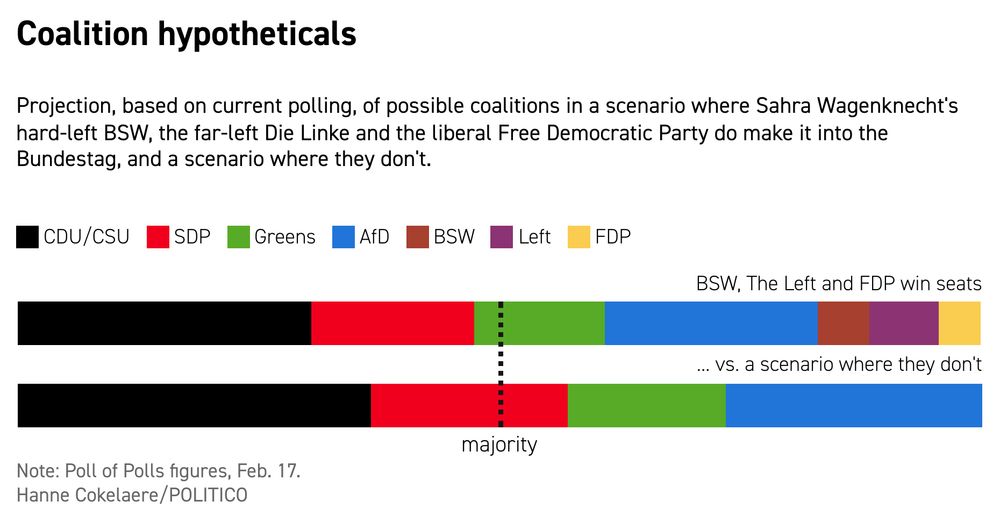
Die Linke, the Sahra Wagenknecht Alliance (BSW), and the FDP are trailing in the polls.
If they fail to get 5% of the vote, they could be shut out of the Bundestag entirely ❌
This would be good news for Merz - giving him the option of a two party coalition, and a couple partners to choose from.
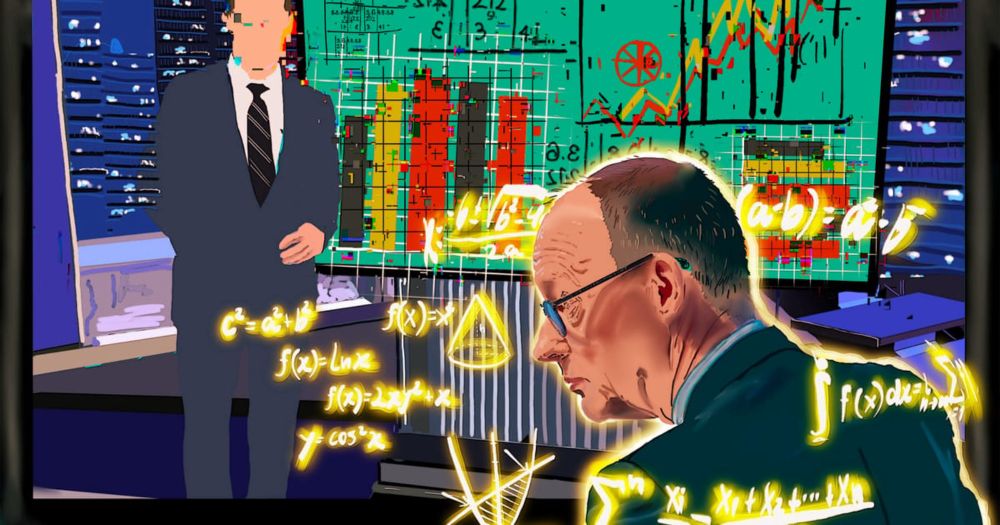
Merz’s dream coalition hinges on the implosion of his smaller rivals:
The fewer parties are left standing in Germany’s election, the stronger his grip on power.
@hannecl.bsky.social and I did the math to figure out which parties could crash and burn to his benefit.
Amazing art by Natália Delgado🎨
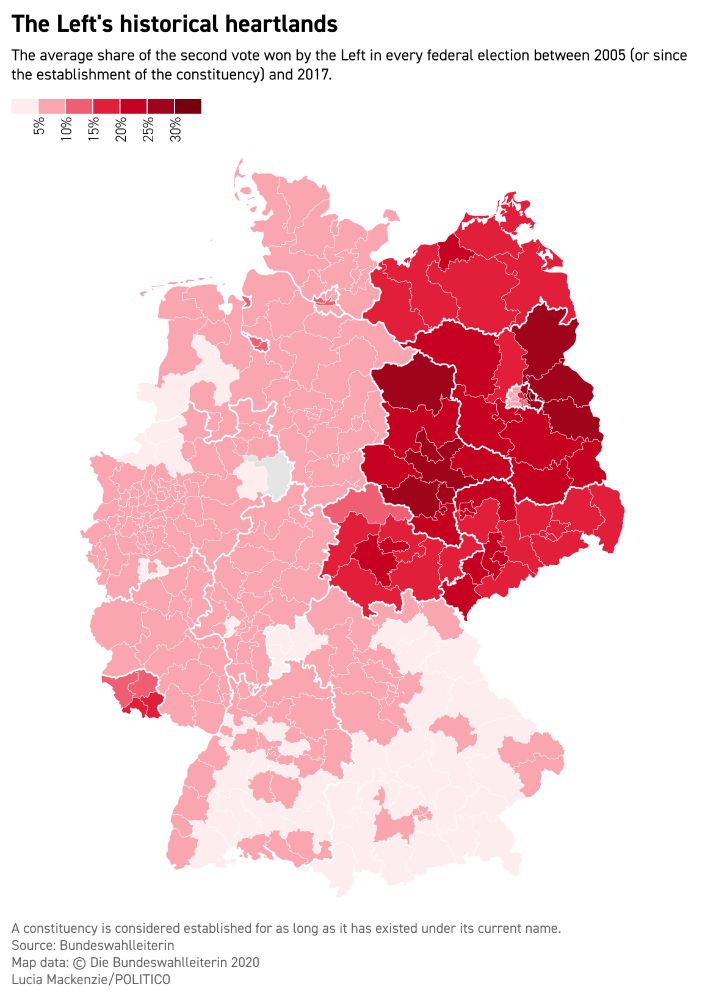
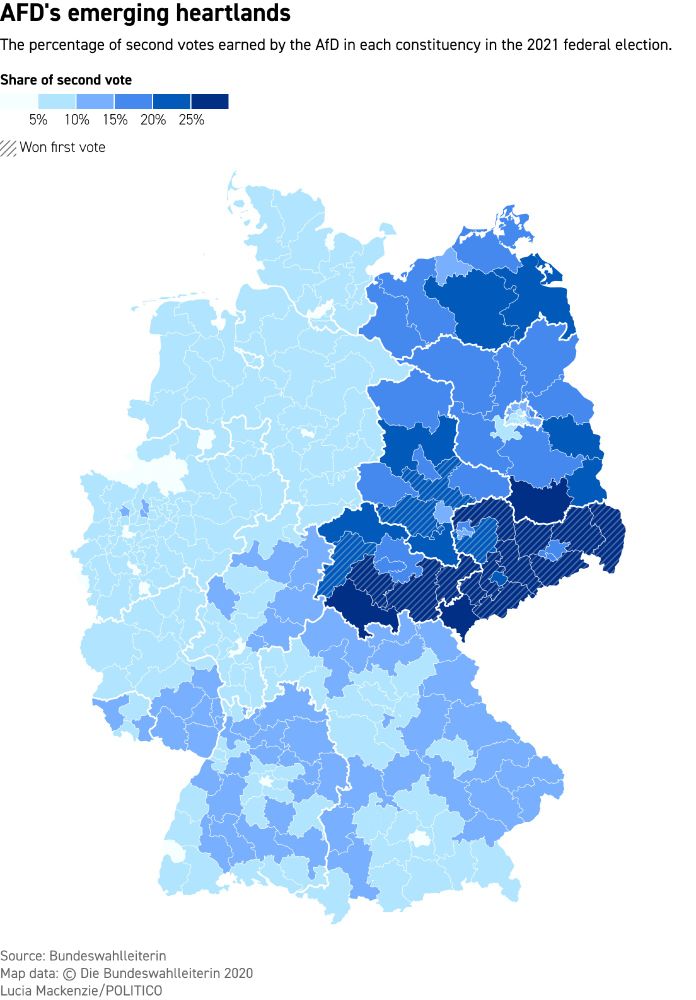
The mainstream parties that have long dominated politics in the West are less deeply rooted in the former East Germany.
This leaves the playing field more open for parties like the AfD on the right extreme of the spectrum, but also for far-left parties such as Die Linke.
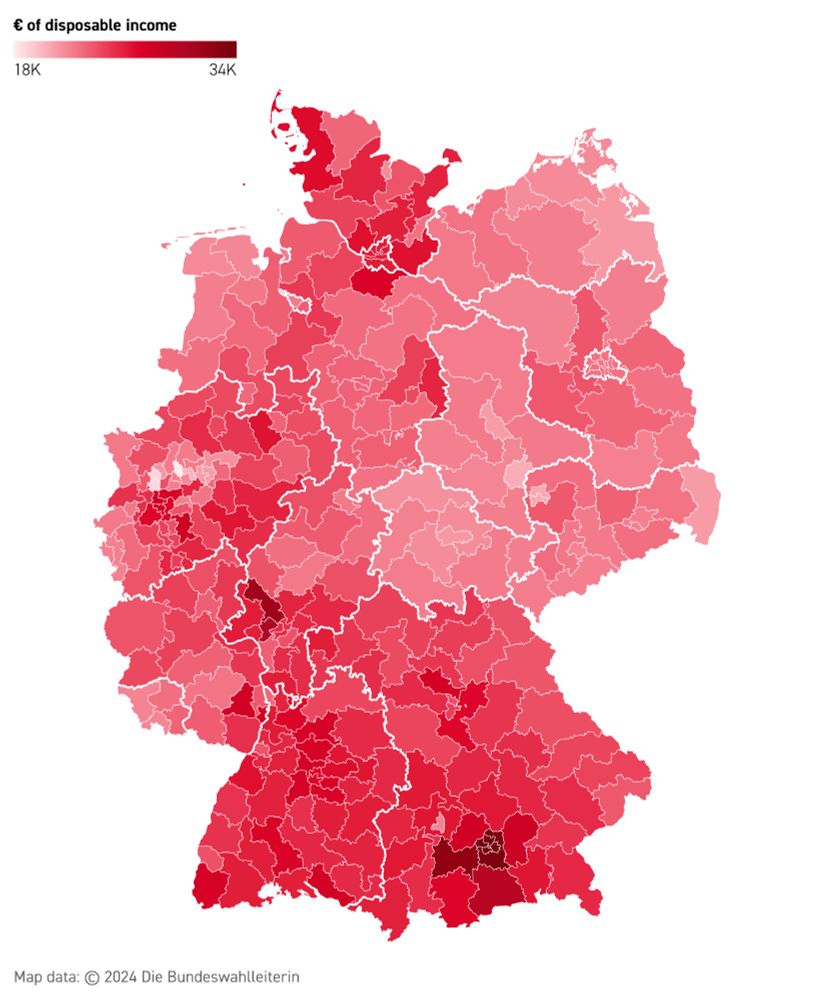
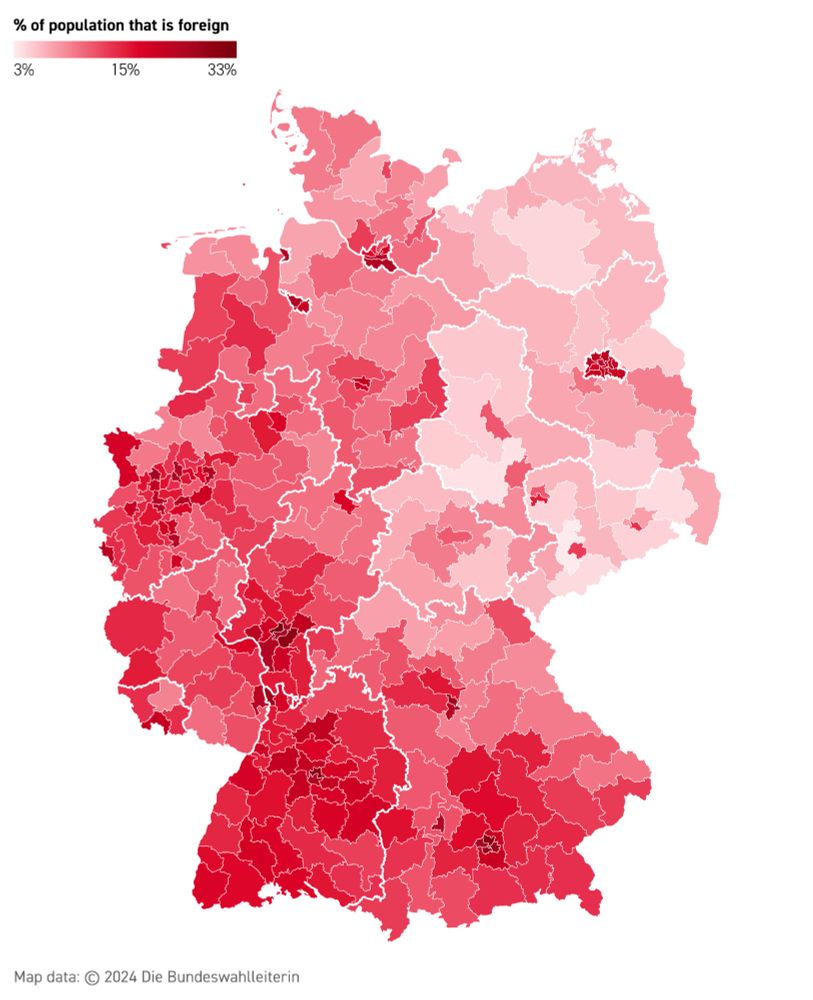
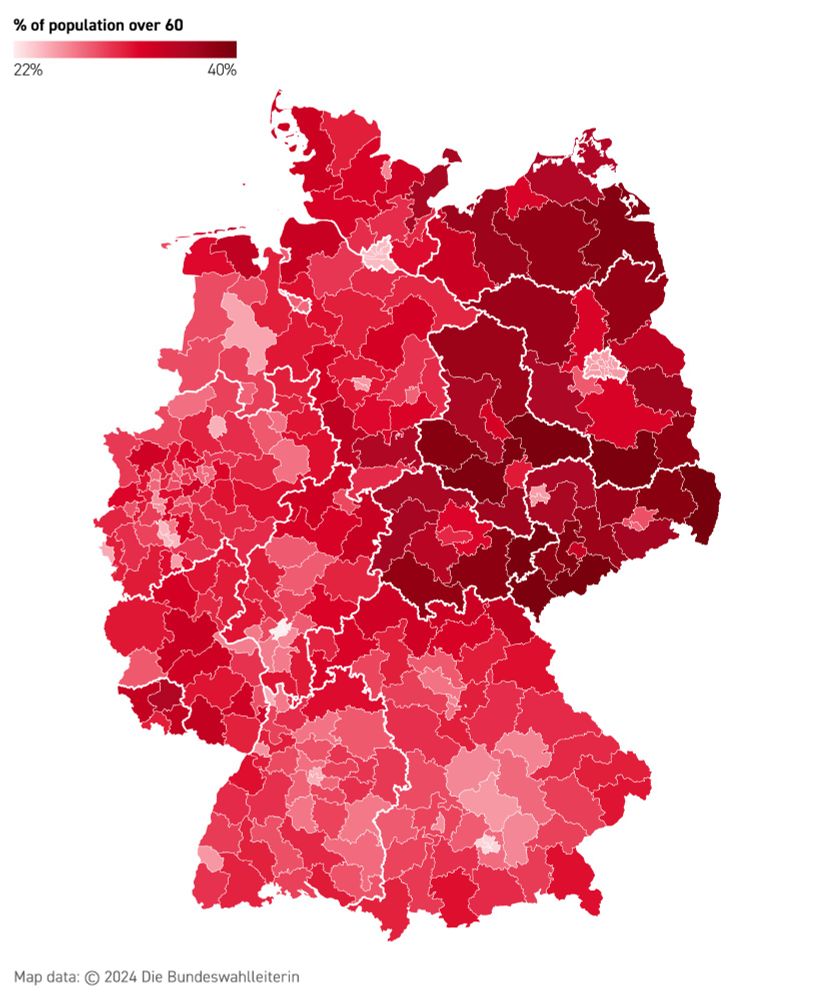
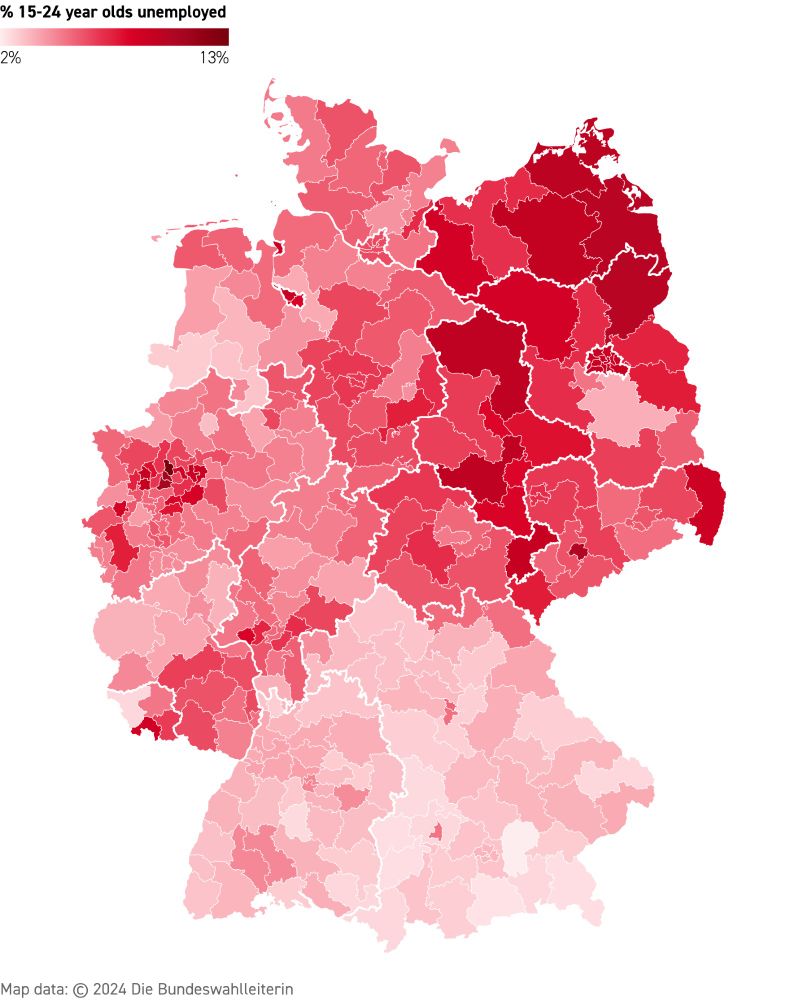
The division between Germany’s East and West did not disappear with the fall of the Berlin Wall in 1989.
An invisible “wall” still runs across the country when key demographic indicators are mapped.
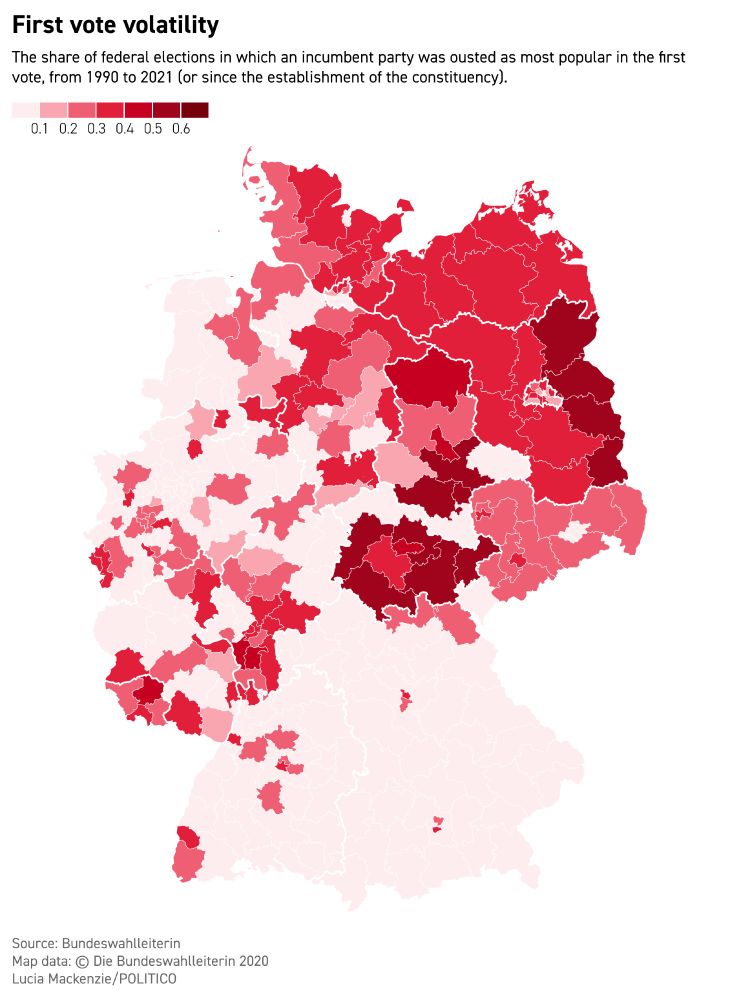
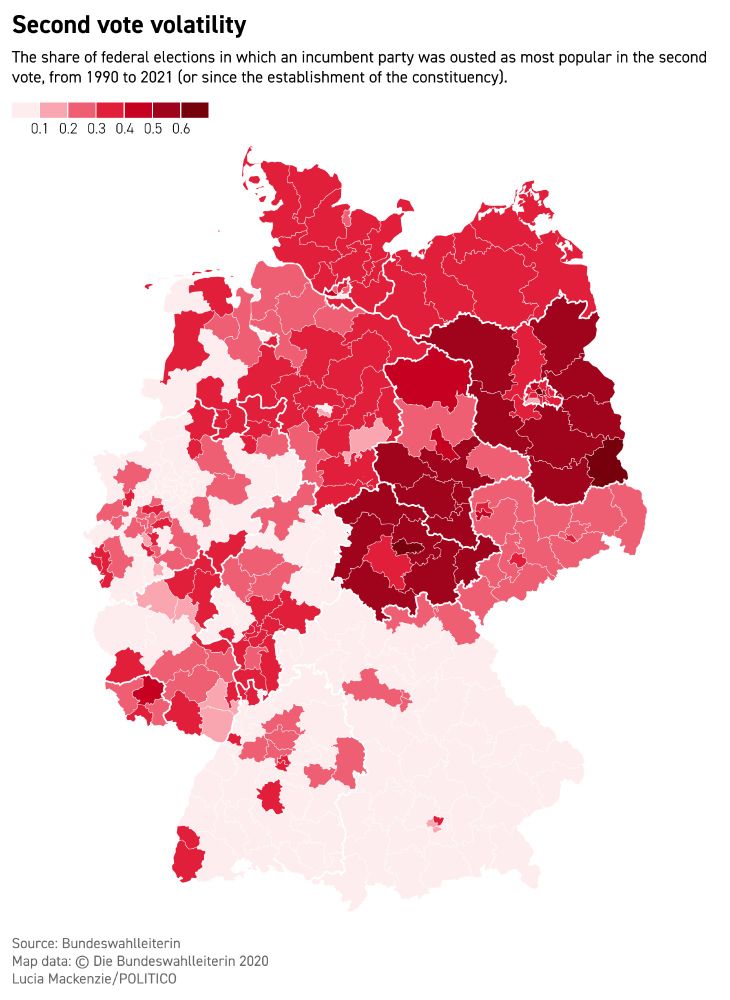
Germany’s eastern constituencies are among the most volatile in the country, frequently changing hands and ousting incumbents.
This makes former East Germany a key region to watch ahead of next week’s election.
Here’s everything you need to know 👇 politico.eu/article/germ...
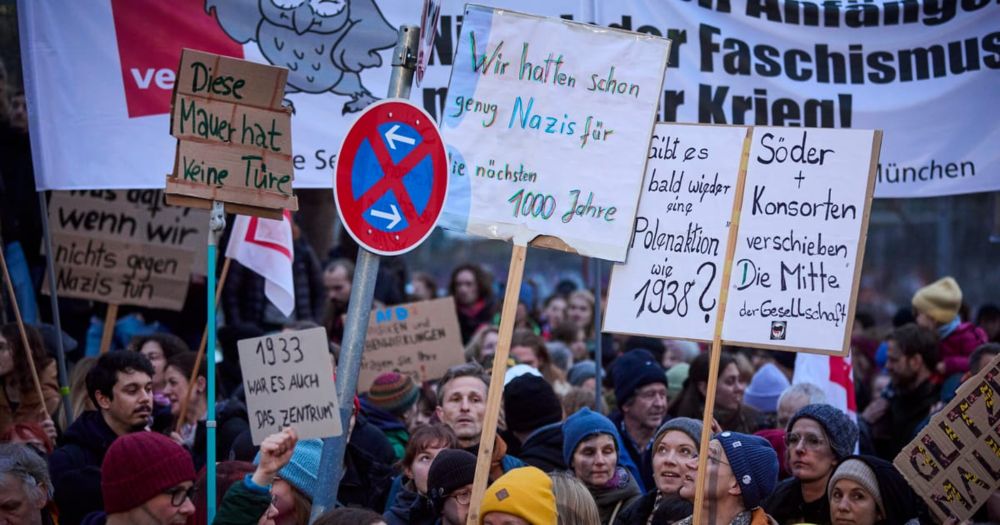
Finally, it’s distinctly possible that the FDP could be the biggest loser of this election.
The party could go from having been a coalition member to not having any seats in the Bundestag if it fails to meet the 5% threshold.
Read the full story here 👇
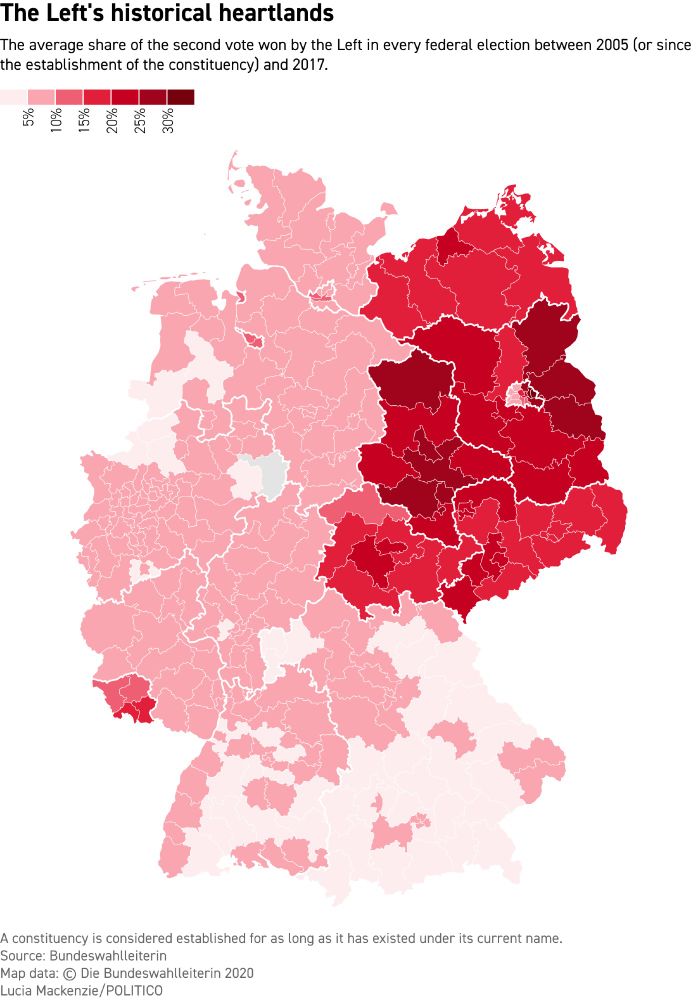
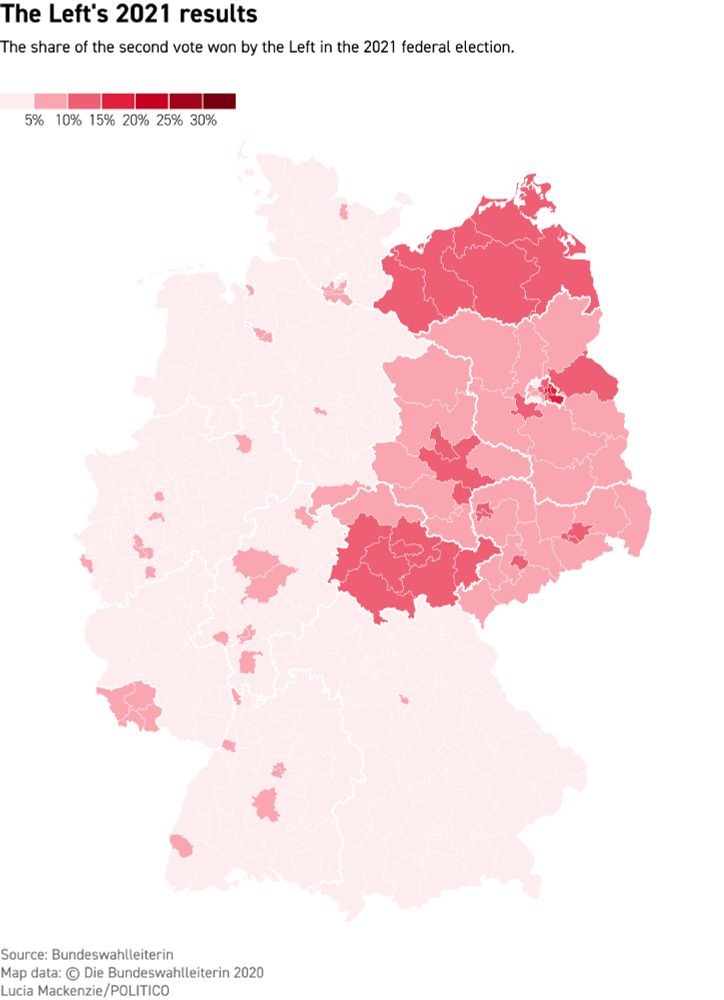
Die Linke has had a tough time of it.
In 2021 party won less than 5% of the vote and was narrowly saved from political obscurity by three key wins.
To make matters worse, infighting resulted in Sahra Wagenknecht breaking away from the party and establishing the rival BSW.
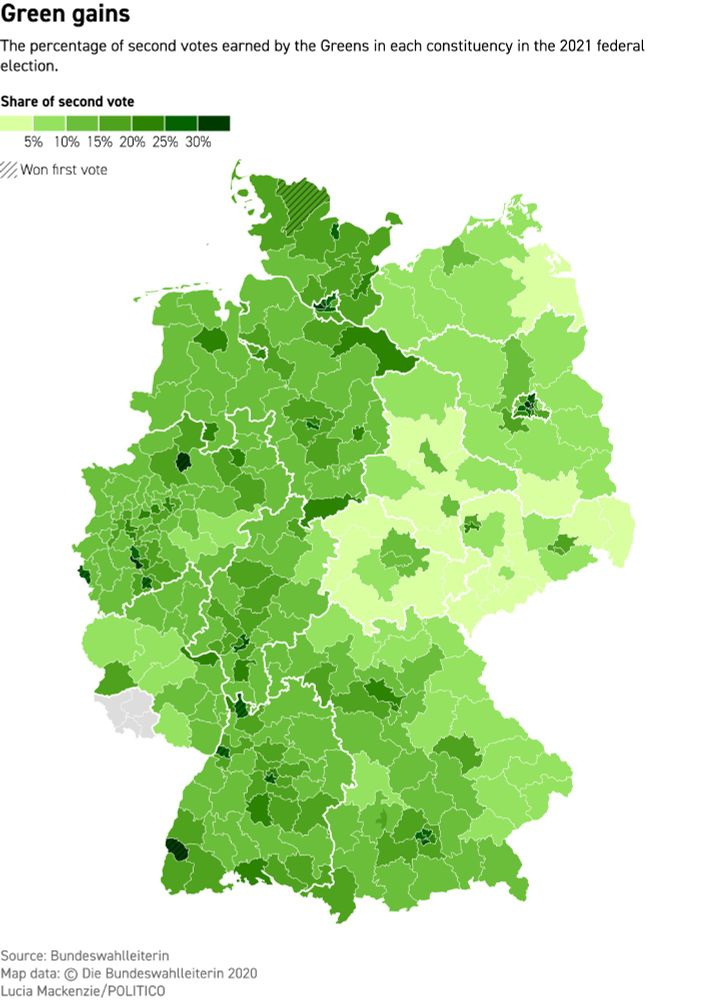
While the AfD surged in the east, the Greens enjoyed more support in the west and urban areas during the 2021 election.
07.02.2025 11:42 — 👍 0 🔁 0 💬 1 📌 0
But the far-right AfD could change that.
The party is currently polling at over 20%, second only to the CDU/CSU, and looks set to win even more of the vote in former East Germany than it did last time.
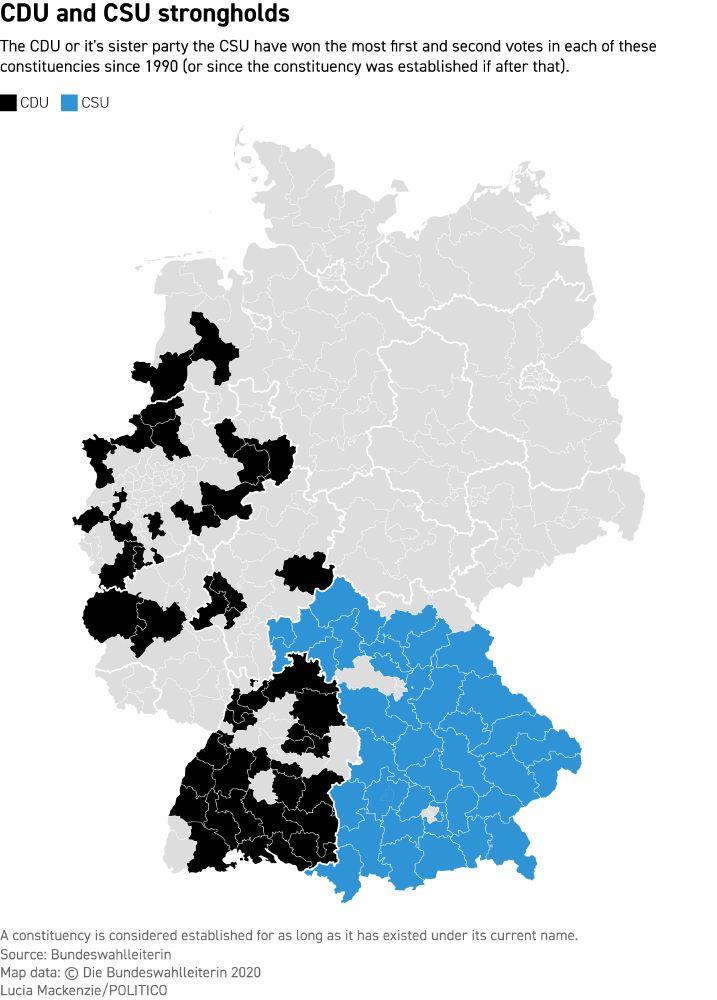
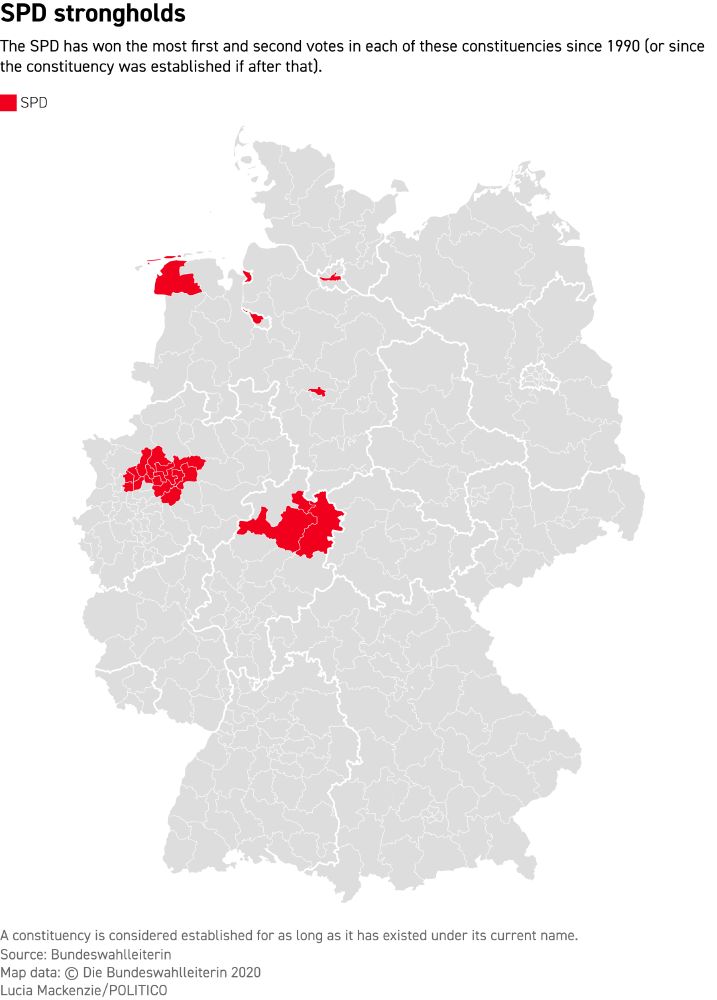
The centre-right CDU and CSU have dominated Germany’s south for yonks, while the centre-left SPD is particularly strong in the industrial Rhine Ruhr region.
Traditionally, these parties take first and second place in Germany’s elections.